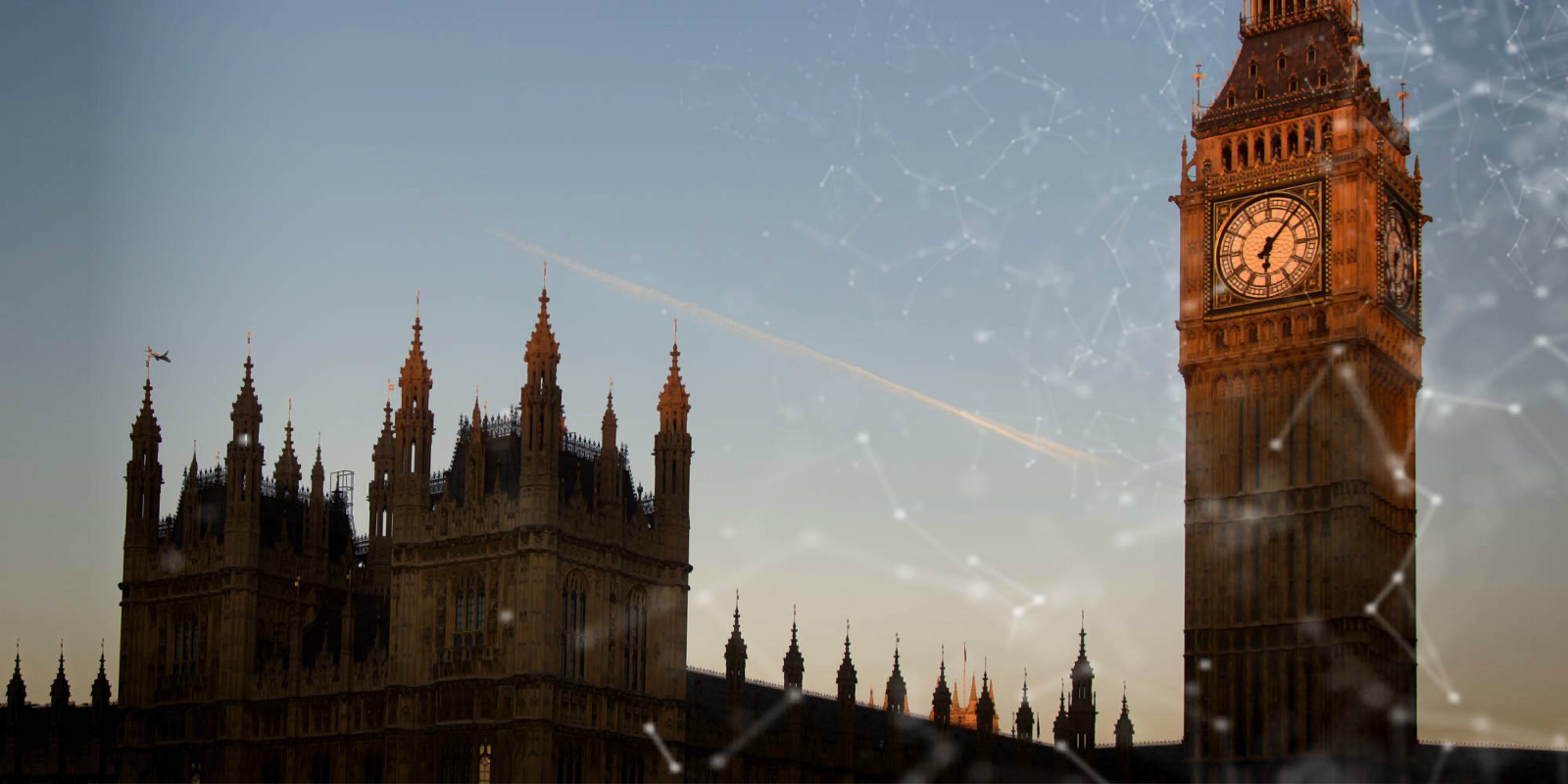
This last week a really refreshing report was released by a British Member of Parliament, Eddie Hughes, about the future of blockchain. The press seemed to mainly focus on his suggestion for a UK Chief Blockchain Officer. But the report really is worth reading through. I scanned through it today and picked out some highlights.
Eddie Hughes is pretty frank: he refers to the collapse of public trust in many of our institutions and political system and states that blockchain might be a way to regain that public trust:
“In a free society, the bonds of trust bring responsible individuals together into chosen community. Freedom and trust go hand in hand. Yet, in the wake of the 2008 financial crisis, and a series of serious public scandals—ranging from the illegal misuseof parliamentary expense accounts, to claims of harassmentand abuse against charity workers—is it any surprise that our institutions are increasingly viewed with suspicion? After what has felt like a never-ending litany of betrayals of trust and instances of overreach, the political and nancial establishments, companies, and voluntary organisations thatwere once seen as pillars of the community, are often now held in little more than near contempt by citizens. Bad behaviour not only harms those directly involved; the trust de cit is destructive to democratic society.”
And then asks the important question:
“Could technologies like blockchain help to restore our society’s lost trust in the institutions of government, and pave the way to greater individual autonomy? Could public encouragement of the entrepreneurial use of such technology lead to signicant efficiency savings, not least across government departments? Could embracing blockchain’s development provide fresh energy and impetus for improvement and innovation using other methods of data storage and wider technological advancement?”
Later he cites these core advantages to adopting blockchain on a large scale:
“The primary benefits of blockchain are general accepted to be security—in terms of transparency, immutability, and decentralisation—and efficiency, particularly regarding theelimination of the need for trusted third parties.
• Blockchain provides traceability and clear provenance. The blockchain holds all of the data from the start of the transaction,so the full history of any asset that is on the ledger can be known. There is no need to audit vast amounts of data, as the blockchain itself is the audit trail.
• In the case of a central database, the security and trustworthiness of the data’s controller are vitally important, because they have full control and responsibility if the data is hacked, altered,or destroyed. Blockchain, however—by allowing data to be held on a distributed platform, and by allowing participants to see if transactions have been amended—cannot be easily manipulated. This makes fraud almost impossible, data loss unlikely, and offers an unparalleled rise in trustworthiness.
• The way in which blockchain cuts out the ‘middle man’ means that connections are made directly, peer-to-peer. This has immense potential to increase trust, to a ord more control to the individuals participating in transactions, and to reduce costs signi cantly. (The use of blockchain itself does entail costs, however, including expenses related to keeping the system secure.)
There are many international examples now of adoption, but Estonia seems to have gone the furthest:
“The efficiency savings in this overall model seem to be unsurprisingly extensive. The current Estonian Prime Minister, Jüri Ratas, told a technology conference in 2017 that the ‘digital solutions of e-Estonia make our daily life a great deal easier and more efficient. For citizens, for companies and for the state. It allows us to save two per cent of GDP every year’.
Its so important he even suggests creating a Chief Blockchain Officer for the UK!
“Embracing the opportunities of distributive ledger technology (DLT) should be fit explicitly —nominally as well as substantively — into a ministerial brief. And a public-facing ‘Chief Blockchain Officer’ should be appointed from within the government’s existing task force to coordinate the U.K.’s strategy regarding the application of DLT to public services and data.”
Its final conclusions are music to my ears:
“Blockchain and associated technologies offer an unrivalled opportunity to begin to review and redesign the UK’s data systems. Whitehall and public services could be fundamentally rewired to empower citizens and better serve their needs. We should encourage digital entrepreneurship. We must tackle the trust de cit. By introducing a departmental target for blockchain e ciency savings, we can begin to generate a digital dividend to pass on to tax payers or to reinvest. And we can use a mix of classical liberal values and new technologies to strengthen individual freedom and improve the life chances of all. We must harness the energy of entrepreneurial spirit created by these new world-changing technologies to ensure the future is freer. By engaging now, and recognising blockchain’s potential, we can ensure it is used by the state to empower individuals, and to afford us real control over our own data.”
It’s quite possible that the UK becomes one of the leading countries to adopt blockchain, at least amongst the G20. We shall see. Whatever happens it could be an amazing way to bring power back to the citizen especially in light of all the concerns about big tech. In some ways, some might say that the large tech companies have become the robber barons of this century, especially if data is the new oil.
This article was first posted in https://emergingfuture.com/

Benjamin J Butler is a Futurist and the Founder of the Emerging Future Institute. He has spent 20 years studying cycles and patterns in human behavior, financial markets and innovation. Until recently he also wrote the international column at Dow Theory Letters, the longest running independent financial newsletter in the USA, focused on patterns in financial charts. Benjamin has held senior positions at UBS and Nomura, was a Principal at hedge fund Edge Capital, and was Managing Partner of a private venture and investment fund. He has also advised the School of Design at Hong Kong Polytechnic University on co-creation and collective intelligence and is an occasional lecturer there. He has given keynote talks at international conferences such as the World Knowledge Forum, MIPIM, the Asia Pacific Financial Forum and most recently the Chinese government on the future of finance at the Tianfu Financial Forum. He is a champion of the human mind and imagination as a way to address the so-called ‘wicked problems’ of our age.
He holds a BA in Economics and Japanese from SOAS, University of London and an MSc from Schumacher College, with a dissertation focused on new scientific approaches to futurism. He has also read law at Kings College London and Investment Management at Hong Kong University of Science and Technology. Benjamin also offers personal coaching at https://emergingfuture.com/product/benjaminjbutler/










